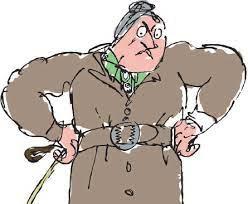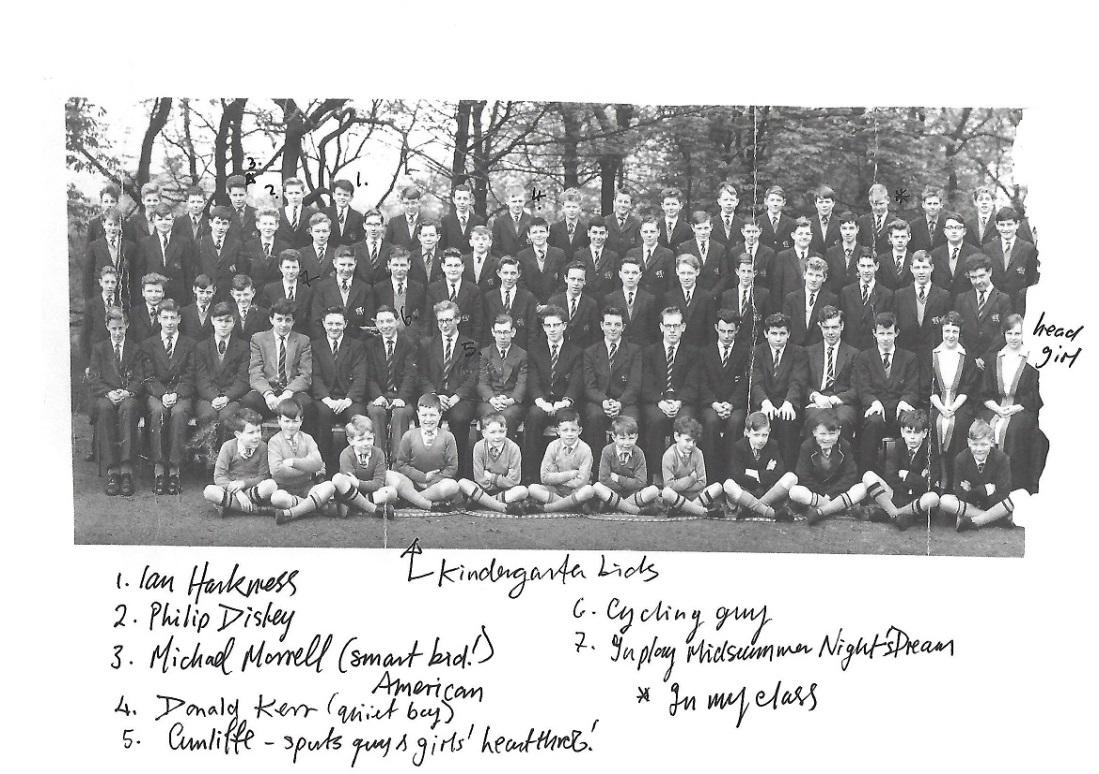I talked about my experience attending Mrs. Bonse’s senior class in the post: Favoritism in the Classroom. Mrs. Bonse was one of those teachers that had ‘favourites’. I got off to a bad start with her because she disliked my older brother Alistair. In contrast, she liked our older brother Stuart. Alistair failed his Eleven Plus (11+) exams. On her recommendation, he was sent to Culcheth Secondary Modern. Stuart passed his 11+ exam and was admitted to Newton-Le-Willows Grammar School, some distance from Culcheth. In this post, I’ll be talking about how my Eleven Plus exams experience has also been influenced by Mrs. Bonse’s favoritism.
Einsteins-in-the-Making
In retrospect, none of my brothers were ‘Einsteins-in-the-making’. I could beat them (and my father) at chess and card/board games when I was just a small boy and way younger than them. This is not so much a point of ‘boasting’; it is to highlight how completely arbitrary that Sandy and Alistair were thrown into the social dustbin, while Stuart advanced to a grammar school.
As mentioned, Stuart was a handsome boy and a ‘charmer’. Perhaps these were the most important characteristics in Mrs. Bonse’s class? Of course, these are just assumptions. But a pattern emerges that you can’t ignore. In other words, in conclusion, the whole system was random and based on elements of corruptness and favouritism.
The senior year in the primary school had two streams, ‘A’ and ‘B’. Academically, I was perhaps a medium performer in the ‘A’ stream. I used to get the highest scores at spelling and arithmetic. In fact, I was ‘top of the class’ in these core subjects. It was expected that all, or nearly all, of the roughly 30 pupils of the ‘A’ stream would pass the 11+ exam, and be admitted to a state-funded grammar school. Those from the ‘B’ stream would be cast into the Secondary Moderns, also funded by the state.
Peter Blinkhorn
Prior to us taking our 11+ exam, Mrs. Bonse asked all the pupils to put their hands up if they wanted to go to the grammar school. Peter Blinkhorn was quite a bright boy, and he would most likely pass his 11+ exam. He was normally a very quiet boy; he had diabetes and had been ill I think. Surprisingly, he didn’t put his hand up when Mrs Bonse asked the question.
“Why didn’t you put your hand up, Peter?” Mrs Bonse asked him.
The children were very interested to hear what he had to say. “Because all my friends go to the Secondary Modern,” he said simply.
Peter lived in the working class area. It was possible that if he went to the grammar school, he felt scared of being ostracised by his working class friends. Perhaps, he was also scared of being ignored by ‘new’ friends who could easily spot a ‘foreigner’ amongst them like a canary amongst the sparrows.
Most of the working class children failed the 11+ exams. Their parents probably didn’t groom their children for this examination. The middle class parents wanted their children to go to the grammar school, so they put extra effort in preparations. These were also the same parents that opted to pay the high cost of private schools in case they don’t.
Teaching ‘Witches’
I mentioned in the post Racism in Children’s Books how the Norwegian-British author Roald Dahl was racist and misogynist.267 Nevertheless, he made many insightful observations regarding the English education system, or more specifically the public school system. He described various sadistic and witch-like teachers, a tradition he inherited from Charles Dickens. Roald Dahl attended various private and Public schools in England, such as the Repton School.
Dickens’s novels are viewed as being a social criticism of the times he lived in; similarly, some of Dahl’s writing about children may also be viewed as implicit social criticism. But of course, although Dickens was a social critic, he was first and foremost an ‘entertainer’.
Thus, while criticising various aspects of society, he would also take a satirical look at society; this is certainly evident in his technique of giving characters and institutions names that poorly camouflaged their real nature. Thus, he presents the private school Dotheboys Hall (that is ‘Do-the-boys’), and the teacher Wackford Squeers in his novel Nicholas Nickleby. Dahl ‘copied’ this technique in naming his ‘educational characters’ such as Miss Trunchbull in Matilda.
Alistair’s Witch
Unfortunately, I don’t possess the skills of Dahl or Dickens, or I could no doubt be better in describing the ‘witch’ that taught me when I was 11 years old. To be fair, Mrs. Bonse was hardly a Miss Trunchbull, as described by Dahl in his novel Matilda. I hardly have sleepless nights thinking about her ‘witch-like’ behaviour.
However, for my elder brother Alistair, she remained throughout his life a ‘witch’. She became a symbol of everything evil that the opposite sex can manifest, especially in relation to children. To be fair to Mrs Bonse, his way of viewing her was bound up with an inherent misogynism, and his intractable nature as a child (which was perhaps due to his relationship with his mother).
Early Expectations
It is almost laughable today (2022) how passing or failing an examination when you were a child can result in such ‘traumatic’ memories. In the list of ‘historical crimes’, it is hardly something that can be given much attention. But it is often the ‘small things’ in life that can become the ‘big things’ in one’s memory. My parents fully expected me to pass the 11+ exam, because my class results had always been good. They decided to buy me a new bike as a reward for ‘passing’ even before I had taken the exam.
My older brother Alistair had a Raleigh Blue Streak bike, comically named after the unsuccessful British nuclear deterrent. It was relatively lightweight, and had five derailleur gears and drop handlebars. In 1960, it was relatively ‘state-of-the-art’. When I went with my parents to the bike shop to choose a new bike – of course, I wanted a bike with ‘racing’ drop handlebars. My next-door neighbour, Billy Babcock, also had a yellow racing bike with drop handlebars.
“Nae they racing handlebars are tae dangerous, fur yer lookin doon instead o’ looking ahead. Straecht handlebars are more safer. Ye kin ainlie hae a bicycle wi’ straecht handlebars!” said my mother coolly.268
My Raleigh Blue Streak
Bikes were quite expensive in those days – perhaps £30, or 3 weeks wages for a factory worker. So it was quite an important decision for parents to buy one of their kids a new bike. What I didn’t realize then of course is that though I just wanted a bike – a racing bike – I didn’t realise this represented a fair part of their sweat and tears, that is, their hard work.
Thus, I ended up with a conventional ‘Raleigh’ in a magnificent metallic royal blue colour. I really liked the bike at first, despite the straight handlebars. But after a while, its heavy weight and only three Sturmey Archer gears meant that I wasn’t that ‘fast’ on it compared to Billy and Alistair, as my skinny legs were unable to propel the heavy machine at any decent speed. I started to lose interest in the bike – I liked my old green German ‘mountain’ bike better.
Eleven Plus Exams Results
To cut a long story short, I failed my 11+ exam and despite my mother’s tearful entreaties, Mrs. Bonse refused to recommend me for the grammar school, saying I wasn’t ‘socially suited’ or some other such vague phrase. In fact, I can remember my mother in tears walking with me to the office of the headmaster, Mr Heald. My stoic Scottish mother rarely cried.
She asked me why I wasn’t crying. To admit the truth, I was fed up with school and unsympathetic teachers like Mrs. Bonse. In addition, Mrs. Bonse had created an uneasy atmosphere in the classroom as she encouraged ‘fawning’. Through her behaviour, she ended up with a class of fawning lapdogs jealous of each other.
I must have subconsciously felt I didn’t deserve the bike as I had failed the very examination that I was supposed to pass to get it. The bike started to gather dust as it was left unused in the garage. I think my parents sold it in the end, losing half of the purchase price, but nobody talked about it. This is one of the awkward moments that everyone is aware of, but decide to keep to themselves because it is better that way.
Fall into Shit and Come Up Smelling Like Roses
My old Cockney friend Charles used to say that I had a talent for ‘falling into shit but coming up smelling like roses’.269 He always thought that I tended to get into some kind of misfortune that ended up having a favourable end. I was fortunate that the frustration of failing the 11+ exam resulted in me attending a better school than a state-run grammar school.
Most state-run grammar schools, although better than Secondary Moderns, were hardly pristine institutions of education. My parents had no other choice than to plunge deep into their pockets to pay for my private education. I was never cast into the ‘social dustbin’ of a Secondary Modern, as had been Mrs. Bonse’s conniving plan, like what she did with my older brother Alistair.
Isis School Entrance Exams Result
After I had taken the entrance examination at the Isis School, my parents paid the school fees, and I started my secondary school education there. Unlike the state-run 11+ exam, the private school examination was not open to ‘corruption’, so when the results of the examination came back, I was informed that I was in the top three amongst the thirty or so candidates that had taken the examination. This was hardly surprising, as I had also done well at Culcheth Primary school, despite Mrs Bonse’s corrupt examination evaluation.
Unfortunately, my parents were not aware that I had done well in the entrance examination and neither were they aware of the fact that doing well in this examination meant that you could be given a grant or a partial grant, so you would not have to pay part or the whole of the school fees. Giving some pupils grants is practised by both private and ‘public’ schools in England. The idea is to give gifted children an opportunity, even if their parents are not well off.
The ‘Interview’ with Mr. Hoyle, the Headmaster
I was to be called into an interview with the headmaster, Mr. Hoyle. Of course, I was totally unprepared for this interview, as I didn’t know what it was about. The interview concerned whether or not I would be eligible for a grant. I can’t remember the exact nature of the interview, but I do remember Mr Hoyle asking me what books I had read. My mind went completely blank. I couldn’t admit to the fact that I had read next-to-nothing.
As mentioned in the previous posts, I had read two or three books, or half-read them, such as Shadow the Sheepdog and the novel about the dog called Tan. Shadow the Sheepdog was hardly one of the literary masterpieces, and I hadn’t finished the book Tan. The other novel I had read, The Boy with the Loaves and Fishes, was a mere Biblical parable. Being silly, I ‘invented’ a book that I had read and told Mr Hoyle all about it.
Obviously, my explanation couldn’t have been very convincing, because of the three pupils with top marks, I was the only one that didn’t receive a grant; the other two received a 50% grant each, so their parents only had to pay half of the school fees.
Sources
267 https://time.com/5937507/roald-dahl-anti-semitism/ Read 10 May 2022.
268 “No those racing handlebars are too dangerous, because you are looking down instead of in front of you. Straight handlebars are much safer. You can only have a bicycle with straight handlebars.” Of course, my mother did not have such a broad Scottish accent – but she nevertheless retained a Scottish dialect throughout her life, but in a milder form. I can’t manage to produce such a ‘milder’ form here – thus I opt for the ‘broader’ version here using the website: http://www.scotranslate.com/
269 I’m not sure if this is a Cockney expression – but it is listed as such in A Dictionary of Catch Phrases by Eric Partridge.



